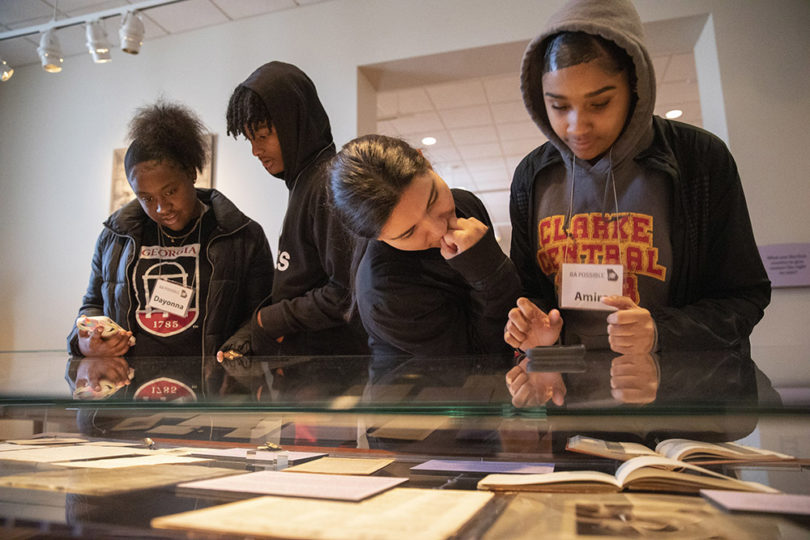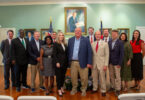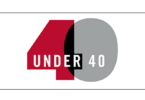We’ve all heard it: What do you want to be when you grow up? For students in the Clarke County School District, the answer to that question ranges from engineer to counselor, and everything in between. The Georgia Possible program is working to turn those answers into attainable goals, thanks to a collaboration between the school district and the University of Georgia.
James Garland, a sophomore at Clarke Central High School and Georgia Possible participant, said he hopes to take an engineering internship with Royal Caribbean following his senior year of high school. “I learned about that opportunity through a session we had on internships,” he said. “Georgia Possible has really helped me figure out my path to a career.”
Garland’s classmate Mara Smith agreed. “Personally, I’ve become a great communicator. I’m not the type of person who would want to get up and talk to somebody, but Georgia Possible has pushed me to put myself out there, to have conversations and to build relationships with people who can help me in the future,” she said.
Testing their capabilities
Georgia Possible provides students with tools and resources focused on career exploration, personal awareness and leadership development. Every three weeks, students from Clarke Central and Cedar Shoals high schools participate in activities such as team-building exercises, group discussions and simulations. The sessions test students’ capabilities while helping them build soft skills to navigate high school, college and career decisions.
“The program is primarily driven by the students,” said Lauren Healey, a public service associate with the UGA J.W. Fanning Institute for Leadership Development. “We’ve built in flexibility to let it evolve based on opportunities and interests.” The program relies on feedback to meet the students’ developing needs. This year, the 40-student cohort has taken the PSAT, met with industry experts, and explored topics such as financial planning, emotional intelligence and conflict management.
“The Georgia Possible organizers are very encouraging. Going into ninth grade and having people believe in you so much is overwhelming in a good way,” said Smith. “When I get out of high school, I want to be a counselor and care about people the way the counselors and instructors care about us.”
Clarke Central Graduation Coach Tonia Jones recognizes the impact the program has had on her students. “I see a group full of future leaders. They’re focusing on their grades, setting goals and forming relationships with people outside of their circles.”

Special collections librarian Jan Hebbard talks to Georgia Possible students from Clarke Central and Cedar Shoals high school at a recent programing event at the Hargrett Library Gallery. (Photo by Peter Frey/UGA)
Ariel Gordon, a counselor at Cedar Shoals, agreed with Jones. “We want our students to self-actualize,” she said. “We want them ready for opportunities, and then we want to link them to opportunities. And I think Georgia Possible does a great job of doing both of those things.”
“It is our job to prepare students for success after high school—whether their paths take them to college, vocational school, military service or directly to the workforce,” said Xernona Thomas, interim Clarke County schools superintendent. “The Georgia Possible program provides support and encouragement to our students (and families) as they learn to navigate new opportunities and career choices, in and out of a classroom.”
Georgia Possible is the result of a collaborative effort between the school district and UGA, including the Office of the President, Office of the Vice President for Public Service and Outreach, Office of Community Relations and the Office of Institutional Diversity.
“We value this partnership with UGA and already have plans for the next cohort of students to participate in the Georgia Possible program,” Thomas said.








